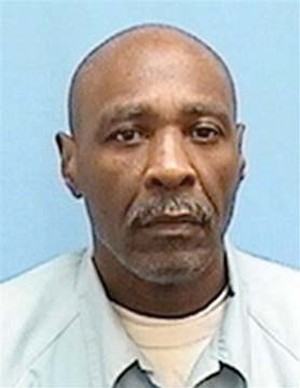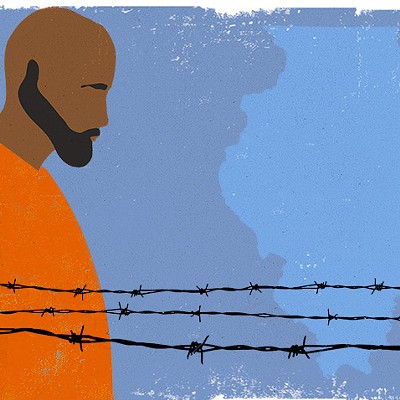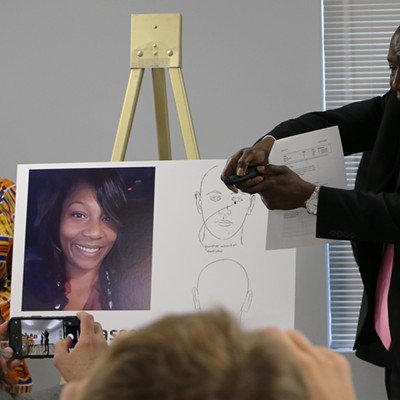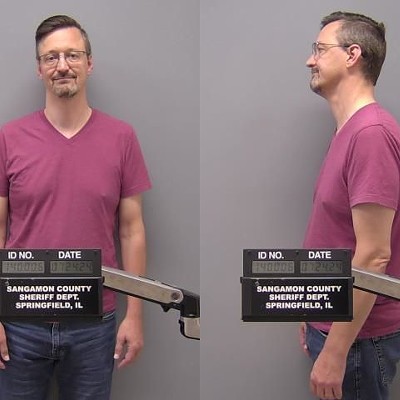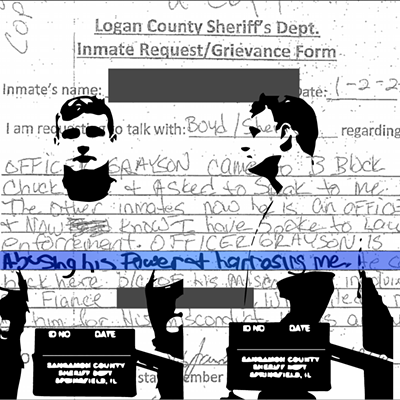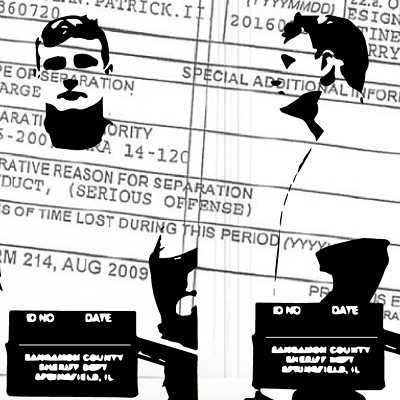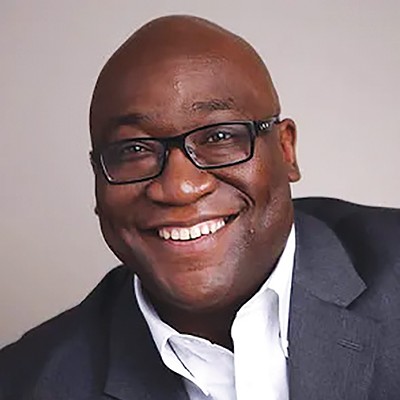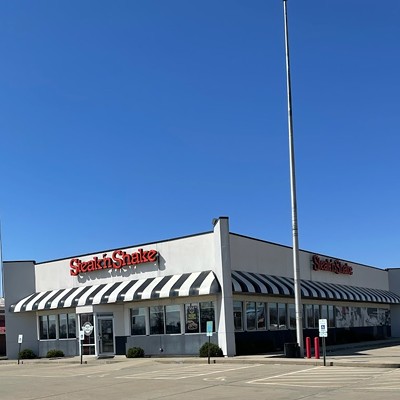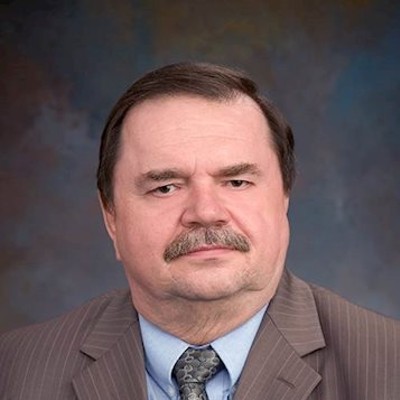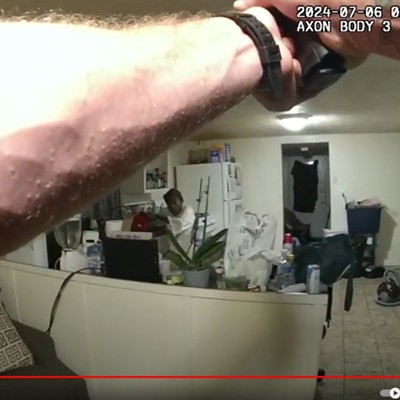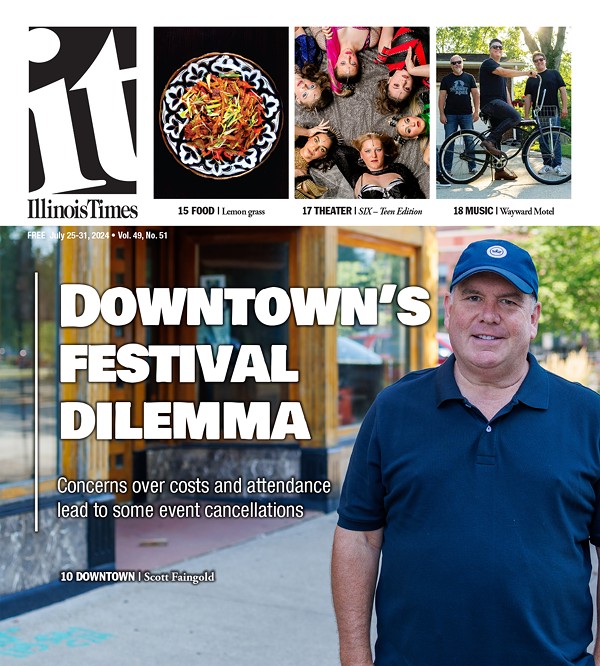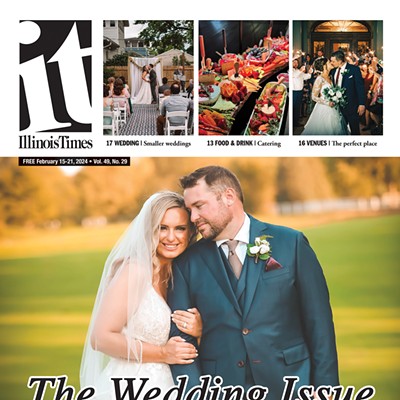Will police torture set convicted rapist free?
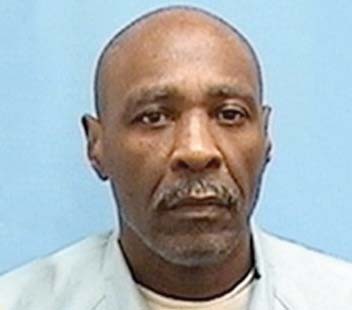
[
{
"name": "Air - MedRect Combo - Inline Content 1",
"component": "11490391",
"insertPoint": "3",
"requiredCountToDisplay": "1",
"parentWrapperClass": "fdn-ads-inline-content-block"
},{
"name": "Air - MedRect Combo - Inline Content 2",
"component": "11490392",
"insertPoint": "7",
"requiredCountToDisplay": "5",
"parentWrapperClass": "fdn-ads-inline-content-block"
},{
"name": "Air - MedRect Combo - Inline Content 3",
"component": "11490393",
"insertPoint": "12",
"requiredCountToDisplay": "9",
"parentWrapperClass": "fdn-ads-inline-content-block"
}
]
No one disputes that Stanley Wrice was beaten by Chicago police to extract a confession.
Now, the state Supreme Court will decide whether the beating and subsequent forced confession is grounds for a hearing that could ultimately result in Wrice being set free after serving nearly 30 years of a 100-year sentence. His supporters say the outcome could prove crucial for 14 other prisoners after confessions that came via torture by Chicago police.
The 1982 crime for which Wrice is doing time was brutal. The victim was so drunk that she could not identify the three men who gang-raped her and burned her with a clothing iron. Two defendants pleaded guilty to battery. One received 30 months of probation, the other got a four-year sentence. Wrice took his chances with a jury.
Prosecutors are asking the Supreme Court to reverse an appeals court that held that use of a confession obtained from torture was not a harmless error and that Wrice deserves a hearing to determine what evidence can be used against him. During a Sept. 15 hearing in Springfield, special prosecutor Myles O’Rourke told justices that there was sufficient evidence, including physical evidence, to convict absent a confession. Two eyewitnesses testified against Wrice, O’Rourke said, and police found the iron used to burn the victim in the defendant’s bedroom.
“This is physical evidence established by witnesses?” Justice Charles E. Freeman asked.
“Yes,” O’Rourke replied.
“Again, no DNA?” Freeman asked.
The prosecutor acknowledged that there was no DNA evidence, nor were there any incriminating fingerprints.
Under questioning by Chief Justice Thomas L. Kilbride, O’Rourke said that one of the eyewitnesses had allegedly been tortured by police. That eyewitness, who was arrested but not charged, has recanted his testimony. The other eyewitness is deceased.
O’Rourke allowed that confessions can have a powerful effect on juries.
“Aren’t we essentially reverting to the inquisitional system in use a long time ago?” asked Justice Anne M. Burke.
No, O’Rourke responded.
“That’s not to infer that the state condones police brutality,” the prosecutor said.
While O’Rourke used all the time allotted to him by court rules, Heidi Linn Lambros, attorney for Wrice, finished early.
The last thing the jury heard before going into deliberations was a prosecutor who “flippantly and mockingly” said that Wrice could not be believed because he had lied about being tortured by police, Lambros said. Last year, however, former police commander Jon Burge was convicted of perjury and obstruction of justice for lying about torture during a civil proceeding. The torture included flogging, waterboarding and electric shock.
“Let’s be very clear about what happened here: This is police brutality at its worst,” Lambros said. “There is not one piece of physical evidence connecting anyone to this crime. The state needed this confession, they coerced it and they exploited it at trial.”
The torture under Burge, who was dismissed from the force in 1993, three years after Chicago police acknowledged brutality, began during the 1970s, according to an amicus brief signed by more than 60 former prosecutors, private attorneys, academics and politicians throughout the state, including three former U.S. attorneys and four former judges. Local signatories include Larry Golden, director of the Downstate Illinois Innocence Project, and attorney Michael B. Metnick.
“None of us expresses a view as to the guilt or innocence of Stanley Wrice or the other men Burge allegedly tortured who remain in prison,” attorneys for the petitioners write in a brief to the Supreme Court. “But we have a common and firm belief that the body politic is poisoned when claims of systematic police abuse and torture are dismissed as ‘harmless.’”
Contact Bruce Rushton at [email protected].
Now, the state Supreme Court will decide whether the beating and subsequent forced confession is grounds for a hearing that could ultimately result in Wrice being set free after serving nearly 30 years of a 100-year sentence. His supporters say the outcome could prove crucial for 14 other prisoners after confessions that came via torture by Chicago police.
The 1982 crime for which Wrice is doing time was brutal. The victim was so drunk that she could not identify the three men who gang-raped her and burned her with a clothing iron. Two defendants pleaded guilty to battery. One received 30 months of probation, the other got a four-year sentence. Wrice took his chances with a jury.
Prosecutors are asking the Supreme Court to reverse an appeals court that held that use of a confession obtained from torture was not a harmless error and that Wrice deserves a hearing to determine what evidence can be used against him. During a Sept. 15 hearing in Springfield, special prosecutor Myles O’Rourke told justices that there was sufficient evidence, including physical evidence, to convict absent a confession. Two eyewitnesses testified against Wrice, O’Rourke said, and police found the iron used to burn the victim in the defendant’s bedroom.
“This is physical evidence established by witnesses?” Justice Charles E. Freeman asked.
“Yes,” O’Rourke replied.
“Again, no DNA?” Freeman asked.
The prosecutor acknowledged that there was no DNA evidence, nor were there any incriminating fingerprints.
Under questioning by Chief Justice Thomas L. Kilbride, O’Rourke said that one of the eyewitnesses had allegedly been tortured by police. That eyewitness, who was arrested but not charged, has recanted his testimony. The other eyewitness is deceased.
O’Rourke allowed that confessions can have a powerful effect on juries.
“Aren’t we essentially reverting to the inquisitional system in use a long time ago?” asked Justice Anne M. Burke.
No, O’Rourke responded.
“That’s not to infer that the state condones police brutality,” the prosecutor said.
While O’Rourke used all the time allotted to him by court rules, Heidi Linn Lambros, attorney for Wrice, finished early.
The last thing the jury heard before going into deliberations was a prosecutor who “flippantly and mockingly” said that Wrice could not be believed because he had lied about being tortured by police, Lambros said. Last year, however, former police commander Jon Burge was convicted of perjury and obstruction of justice for lying about torture during a civil proceeding. The torture included flogging, waterboarding and electric shock.
“Let’s be very clear about what happened here: This is police brutality at its worst,” Lambros said. “There is not one piece of physical evidence connecting anyone to this crime. The state needed this confession, they coerced it and they exploited it at trial.”
The torture under Burge, who was dismissed from the force in 1993, three years after Chicago police acknowledged brutality, began during the 1970s, according to an amicus brief signed by more than 60 former prosecutors, private attorneys, academics and politicians throughout the state, including three former U.S. attorneys and four former judges. Local signatories include Larry Golden, director of the Downstate Illinois Innocence Project, and attorney Michael B. Metnick.
“None of us expresses a view as to the guilt or innocence of Stanley Wrice or the other men Burge allegedly tortured who remain in prison,” attorneys for the petitioners write in a brief to the Supreme Court. “But we have a common and firm belief that the body politic is poisoned when claims of systematic police abuse and torture are dismissed as ‘harmless.’”
Contact Bruce Rushton at [email protected].
Illinois Times has provided readers with independent journalism for almost 50 years, from news and politics to arts and culture.
Your support will help cover the costs of editorial content published each week. Without local news organizations, we would be less informed about the issues that affect our community..
Got something to say?
Send a letter to the editor and we'll publish your feedback in print!

